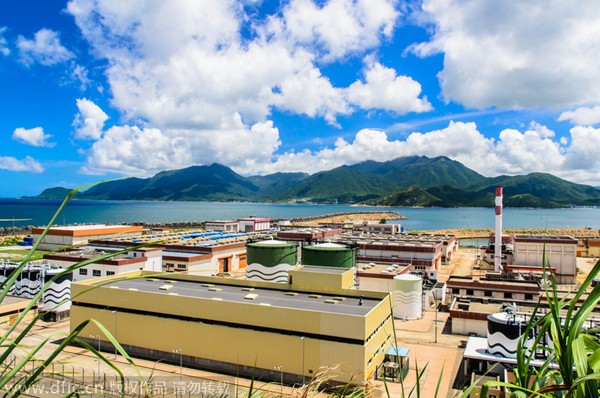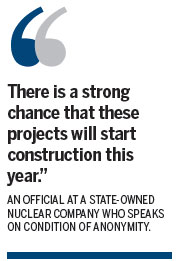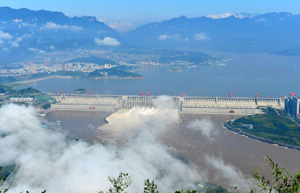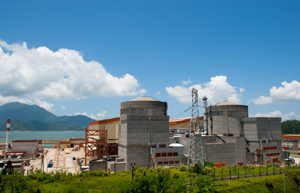 |
|
Dayawan nuclear plant in Shenzhen city, Guangdong province, on Aug 7, 2013. The Dayawan plant, equipped with two reactors, is China's first nuclear plant to be put into commercial use. [Photo / IC] |
Industry experts say approval most likely for expansion of coastal projects
The expansion of nuclear energy in China is likely to involve new reactors at existing coastal facilities, but the timeline for approval and construction remains unclear even as energy officials push for more nuclear generation to meet electricity demands of a growing economy, experts said.

Zhang Guobao, former head of the National Energy Administration, said that technical and other issues are holding up new projects.
"Construction had been expected to start on a number of coastal nuclear projects, but approvals will depend on how quickly they are able to resolve the challenges of the third-generation nuclear power technology to meet the required safety standards," he said.
Zhang added that the approach of winter, especially in the northern provinces, is also holding up construction.
Nonetheless, a meeting held by the NEA last Friday revived speculation that China, which has the world's fastest-growing nuclear market, will embark on a program of new nuclear plants.
Earlier reports said that the meeting was held to review third-generation nuclear technologies to see which technical route is best-suited to be commercialized in China.
Third-generation plants rely on so-called passive safety measures such as gravity, rather than requiring human action.
The technologies under consideration include Hualong 1 (first dragon), developed by the China National Nuclear Corp and Guangdong-based China General Nuclear Power Corp. Another technology is the CAP1400, adapted from Westinghouse Electric Corp's third-generation AP1000 reactor.
After the Fukushima nuclear disaster in Japan in the wake of a massive earthquake in 2011, China put nuclear plant approval and construction on hold to revise its safety standards. But the nation is planning to expand its nuclear power capacity to ensure energy security and economic growth.
Preparations have been in progress for years on both inland and coastal nuclear power projects, but which plants will be the first to win approval remains unknown.
|
 |
 |
| Officials: Renewables need concerted efforts | New norms signal support for nuclear plants |
